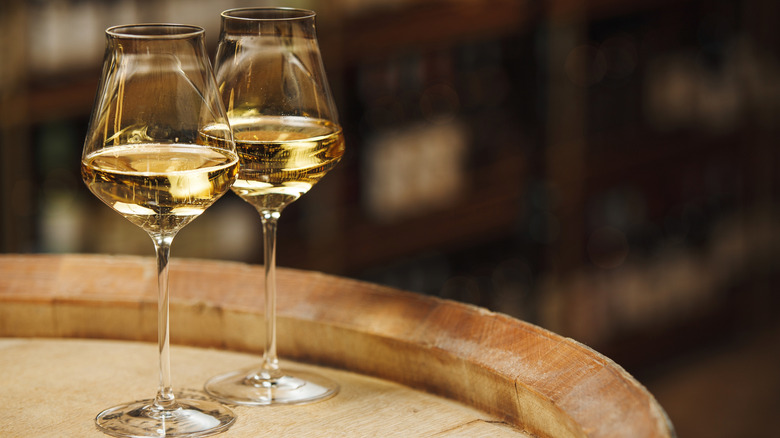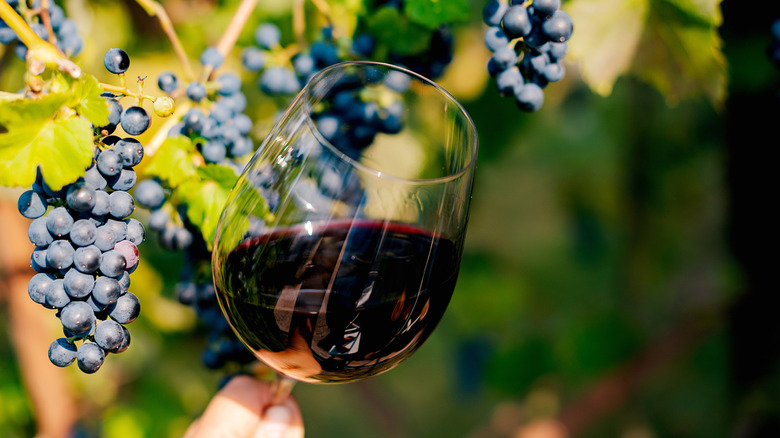Wait, Not All Wine Is Vegan?
It might seem fair to assume that wine is generally a vegan beverage. It's made with grape juice and yeast to ferment, so there doesn't seem to be any reason for dairy or meat to be in it. However, that assumption is wrong: Many wines are processed using animal products, making them not necessarily vegan and sometimes not even vegetarian.
The reason for this is a process called fining. When wines are freshly fermented, they typically have particles suspended in the liquid, like tannins, yeast, and proteins, giving the wine a cloudy look. Over time, these will settle on their own (for example, forming a sediment at the bottom of the bottle, giving you a reason to use a decanter), but that can be a slow process. So, winemakers often use the fining process to clarify their wine, making it a nice, clear, non-cloudy color. Certain proteins are added to the wine and effectively latch onto those cloudy particles before dropping to the bottom of a wine barrel, where they can be filtered out. It's these proteins that are the culprit here: The most commonly used fining agents are milk or animal proteins (specifically casein and gelatin), isinglass (a gelatin derived from fish bladders), and albumin (from egg whites).
These fining agents should be removed from the wine before it's bottled, but trace amounts can remain in it, making it non-vegan. If gelatin or isinglass are used, it's also not vegetarian.
How to look for vegan wines
When you're shopping for vegan foods, it's often as simple as looking at the label or ingredients to figure out if something fits the bill: Products like vegan cheese almost always flag this. Unfortunately, with wine, it's not so simple. Wine labels often don't list whether the product is vegan or whether it has been fined, and if so, what kind of fining agent was used in the process. Some wines may be erroneously labeled vegan, perhaps based on the technicality that fining agents are used in processing but aren't directly an ingredient. Winemakers also aren't legally required to make these disclosures.
While fining is common in winemaking, this doesn't mean all wines are vegan-unfriendly. There are vegan-friendly fining agents, like activated charcoal and bentonite (a type of clay). However, which agent has been used in winemaking may not be clear. To confirm whether a wine is vegan, you may need to contact the winemaker or company directly. You can also consult a certification organization called BevVeg, which lists legitimate vegan wines. Alternatively, if wines are labeled as "unfined" or "unfiltered," this means that no fining agent has been used, so it should be a safe bet. Cloudy-looking natural wines are usually unfined, so they're also a better option. Kosher wines are also better, as they can't be made with casein or isinglass, although they may still only be vegetarian, as egg whites can be used in kosher wine.

